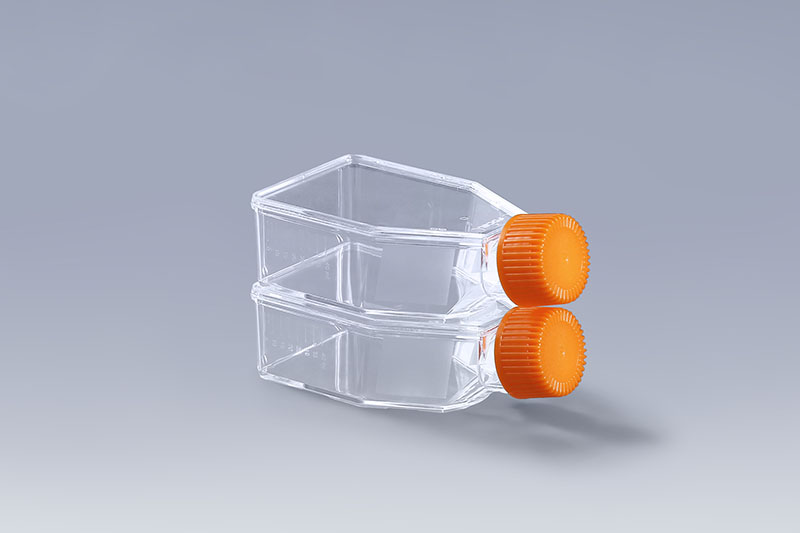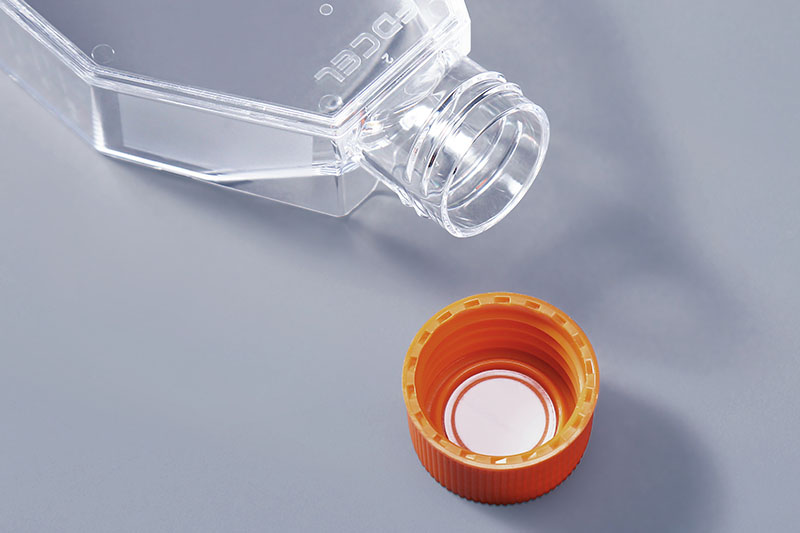Why do cell culture flasks need TC- treated?
Cell culture can be divided into adherent cells and suspension cells according to the different culture methods. Adherent cell culture needs to use TC-treated cell culture flasks, so why do TC-treated?
What is TC-treated?
The full name of TC-treated is Tissue culturetreated. TC-treated means that the cell culture flask has undergone surface modification treatment and is suitable for the culture of adherent cells.
FuDau T25 Cell Culture Flasks
Why do cell culture flasks need TC-treated?
Adherent cells need to have a support surface that can be attached, and rely on the attachment factors secreted by themselves or in the culture medium to grow and reproduce on the surface. Most animal cells are adherent cells. At first, the cell culture flasks on the market were mainly made of glass. The glass itself is hydrophilic, and the surface can be suitable for the growth of adherent cells without any treatment. However, in practical applications, the disadvantages of high cleaning cost and fragility of glass are gradually highlighted, and are gradually replaced by polymer materials with better performance.
FuDau T75 Cell Culture Flasks
For example, polystyrene (PS) has very good light transmittance and plasticity, and is non-toxic and odorless, making it the best choice for disposable cell culture consumables. However, the surface of this material is hydrophobic, so it needs to undergo surface modification treatment to enhance the ability of cell adsorption and protein binding, making it suitable for adherent cells to grow.
Therefore, in order to enhance the ability of cell adsorption and protein binding, and make it suitable for the growth of adherent cells, cell culture flasks generally need TC- treated.


评论
发表评论